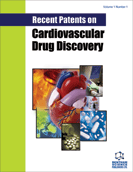Abstract
Ivabradine (a compound of the benzocyclobutane) is a highly selective If current inhibitor acting directly on the sino-atrial node, induces a rapid, sustained and dose-dependent reduction of heart rate at rest and during exercise without a significant effect on atrio-ventricular conduction, left ventricular contraction/relaxation or vascular tissues. These properties associated with an improvement in left ventricular loading related to bradycardia resulted in an increase in stroke volume and preservation in cardiac output even during exercise. Various experimental and clinical studies showed the efficacy of ivabradine in patients with chronic stable angina, on heart rate reduction, on ventricular remodelling after acute myocardial infarction and on coronary blood flow. The safety of ivabradine has been documented in several studies and clinical trials, in contrast to beta-blockers, no significant side effects were expressed in the literature. The aim of our review is to describe ivabradine and its cardiovascular effects and outline some recent patents and the results of the most important trials.
Keywords: Ivabradine, benzocyclobutane, bradycardia, heart rate, coronary disease
 20
20


